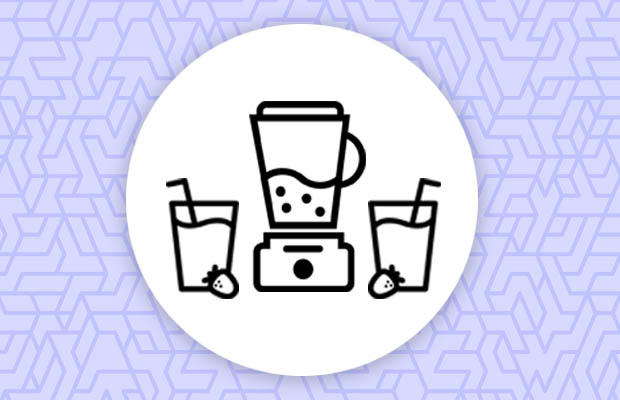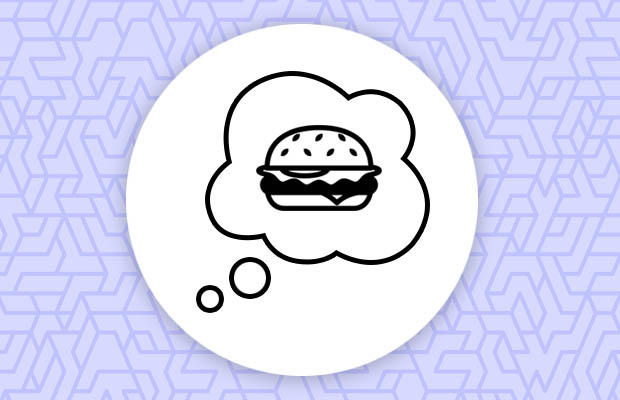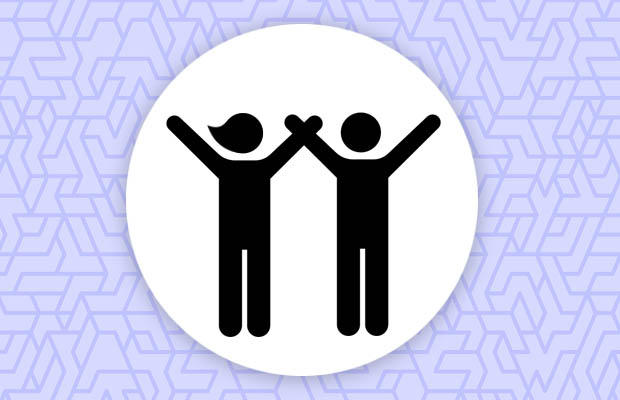For the right candidates, weight loss surgery is literally a lifesaver. "There is more evidence than ever that it helps reduce the risk of diabetes, heart disease, and cancers and improves quality of life," Aronne says. "Bariatric surgery is also safer than ever—it' s about as risky as gallbladder surgery, which is considered to be quite safe."
But it's still no walk in the park. We talked to 12 men and women who went through it. Here's what you may not know, straight from those who have lived it.
Your new diet and lifestyle start even before the surgery.
 Image by The Noun Project
Image by The Noun Project
"I followed guidelines from the hospital, Saint Agnes Hospital in Baltimore, to get my body ready for surgery by exercising and eating right, and I ended up losing about 17 pounds. That said, before surgery many bariatric patients participate in what they call the 'last supper,' where they gorge themselves with food they think they will no longer be able to eat. My 'last supper' was a cheeseburger." –Antoinette Jordan, 48, Catonsville, MD
"To shrink your liver—so the physicians can see it more clearly when they're operating—you have to have only protein drinks for 2 weeks before surgery. I felt very low energy and sluggish the first 3 days. Being around people who were eating was challenging, but I stuck it out; food already destroyed my life and I was ready to take back control." –Bernadette Hardesty, 38, Baltimore, MD
"Prior to surgery, my doctor required several hours of instruction to anticipate the post-surgical diet. I remember in one 'fatty class' (as I euphemistically called it), the instructor was telling us that we would be quite satisfied with 4 ounces of fat-free tomato soup and 2 ounces of tuna. I interrupted her and exclaimed, 'Excuse me, but 2 ounces? Sweetie, that's what falls off my plate!' Turns out she was right, and I went to see her much later and apologized." –Michael S. Pickert, MD, Livingston, NJ
Recovery can take weeks.
"I spent 2 days at the hospital and then was off of work for 5 weeks. The recovery was painful and difficult. I wasn't able to sleep in my bed for a few weeks. Things healed well, but it took time. I wasn't hungry or thirsty for several weeks and had to force myself to eat and drink." –Brenda Lacalmontie, 43, Elkridge, MD
"The first 2 days of recovery were rough. It was hard to breathe and coughing hurt. They had put me on a ventilator during surgery because I have sleep apnea; afterward they gave me this box with a tube on it to blow in to exercise my lungs. I had to blow into it as hard as I could every 15 minutes for maybe a day and a half after I went home." –Maxwell Ivey, 50, Houston, TX
"The drainage port was the grossest experience. During surgery they placed a long tube under my rib cage that had a pocket of sorts on the outside. It remained in place for a week afterward. I was surprised that I had to record the amount and color of the fluid that drained out—it ranged from clear to pinkish—and empty it twice a day!" –April Mitchell, 34, Glen Burnie, MD
The biggest challenge may be retraining your brain.
 Image by The Noun Project
Image by The Noun Project
"Adjusting to the new way I had to eat post-surgery was the hardest part. While I did not have a physical appetite, my 'head hunger' was difficult to manage. Everywhere I turned, I was reminded of food, and it made me realize how food-centered my life used to be. I had to work really hard to change my outlook and relationship with what I ate; I had to accept that food is fuel and that I needed to eat to live, not live to eat." –Jeanine Williams, 37, Essex, MD
"The hardest part was learning what my new body could and couldn't handle. I had to give up pasta and rice entirely—if I eat them, I'll throw up. Bread and most sweets give me gas, bloating, and cramps. Really spicy foods give me severe heartburn now. I seem to do better with 'wet' foods, so sauces, stews, and soups are now my favorite meals." –Amy Korn-Reavis, 50, Orlando, FL
Weight loss surgery isn't a cure. The struggle to maintain a healthy weight continues forever.
"The first 9 months were exciting as I watched the numbers on the scale go down. After that, it became more of a struggle. I had to remember that I still couldn't just eat everything I wanted to and expect to lose weight. I had to stick to healthy habits and exercise just like everyone else. I gained back 20 pounds and am now working to take that weight off." –Liz Polay-Wettengel, 48, Newton, MA
"The extraordinary benefits you receive from the surgery take place in the first 18 months. After that, it gets tougher. Some of the weight regain has led me to feel like a failure. Even though I haven't regained everything, I'm at a 'familiar' weight again, so sometimes it feels like I've achieved nothing." –Rena Russman, 56, Denver, CO
But the benefits outweigh the challenges.
 Image by The Noun Project
Image by The Noun Project
"Not only are we making better, healthier food choices for ourselves, but we're doing so for our 13-year-old son, too. I honestly didn't realize how our being overweight had affected him. He never wanted Mom and Dad coming on field trips—he was always worried that kids would make fun of us for our weight. Now he wants to go places with us and have us come to his school concerts. He's told us many times he is happy that we lost the weight, and that he loves that we do more things as a family now." –Bernadette Hardesty, whose husband also underwent bariatric surgery
"Now I run, I hike, I bike—I absolutely love being physically active and trying new things. At work, I'm more confident and focused. I feel good about how I look. I feel happy and free. A lot of what we do as a family now is centered around physical activity, healthy eating, and enjoying new experiences." –Jeanine Williams
"At work I'm more active, more cheerful, and I participate more in group activities. My professional responsibilities and quality of work have increased. Feeling better makes me think better, and it definitely shows in my performance. Before my surgery I was the ashamed, quiet girl with no input. Now I'm not just occupying space in a room—I'm part of the team." –Antoinette Jordan
"Before surgery I had high blood pressure, was borderline diabetic, and was on seven different prescription meds. I lost around 250 pounds and now I have more energy and more confidence. I'm much quicker to say yes to new opportunities, and there is very little that scares me." –Maxwell Ivey
"I'm getting a lot of attention now. I'm not married, and relationships are coming my way—and I'm 61! My self-esteem totally changed after losing 65 pounds in 9 months." –Sandra Ikuenobe, 61, Eden Prairie, MN
"The surgery saved my life, really. Before, a mood disorder had me on medications that led to major weight gain. But becoming fit and healthy led me to be able to manage my moods better and put me in charge of my health. After going from 247 pounds to 130, I feel fantastic, reborn." –Rena Russman
"I no longer have diabetes or sleep apnea, and my blood pressure is under control. I feel like Captain America! I have all this energy now, whereas before the simplest task, like tying my shoes, was a chore. I recently went to an amusement park with my kids and they couldn't get me off the rides—now that I fit in them!" –Jerardo Madrigal, 45, Santa Maria, CA




